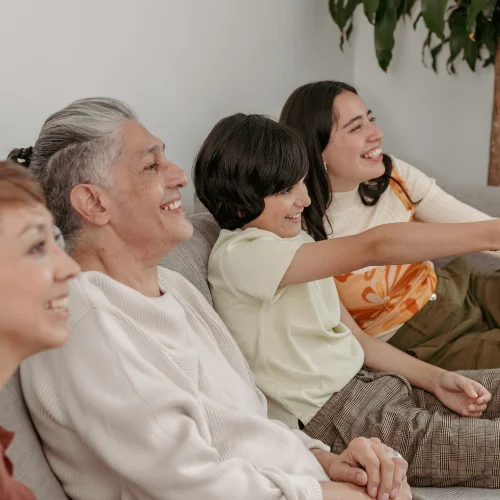My Mom Has Dementia and I Live Far Away: Navigating the Emotional Rollercoaster
Have you ever experienced that sinking feeling in the pit of your stomach when you receive unexpected news? That feeling of helplessness and concern for someone you love dearly? Well, that’s exactly what I felt when I found out that my mom had been diagnosed with dementia. To make matters more challenging, I live far away from her, which adds an extra layer of complexity to an already difficult situation. In this blog post, I want to share my personal journey of navigating through the emotional rollercoaster of having a mom with dementia while being physically distant. Let’s dive in.
The Initial Shock and Emotional Turmoil

When I first received the news of my mom’s diagnosis, it hit me like a ton of bricks. The world around me seemed to come crashing down, and I was left grappling with a mix of emotions: fear, sadness, and a deep sense of loss. It was as if my strong, independent mom had suddenly become vulnerable and fragile.
Living far away from her only intensified these emotions. I couldn’t just drop everything and rush to her side. I felt guilty for not being there physically, even though I knew it wasn’t entirely within my control. Transitioning from the initial shock to acceptance took time, and it required me to find ways to support my mom from a distance.
Embracing Technology to Stay Connected

Thankfully, we live in an age where technology bridges the gap between physical distances. Harnessing the power of video calls, social media, and messaging apps has been a game-changer for me. I can check in with my mom regularly, see her smile, and have meaningful conversations, even though we may be thousands of miles apart.
For instance, every Sunday, we have a designated video call time where I help her recall cherished memories from the past. It not only brings us closer but also helps stimulate her cognitive abilities. We also use shared online photo albums to reminisce about family vacations and special occasions. These digital connections have become lifelines, allowing me to be present in my mom’s life, despite the physical distance.
Seeking Support Networks

Caring for a loved one with dementia can be an overwhelming experience, and it’s crucial not to shoulder the burden alone. While living far away, I’ve discovered the value of building a support network. This network comprises not only family members but also friends, neighbors, and professional caregivers who can step in when needed.
One example is a close family friend who lives near my mom. She visits regularly, runs errands, and provides companionship, offering the kind of support I wish I could provide in person. Additionally, I’ve joined online communities and support groups where I can connect with others going through similar experiences. Sharing stories, advice, and encouragement has helped me feel less isolated and more empowered.
Coordinating Care and Decision Making

Dementia often requires a coordinated effort when it comes to caregiving and decision-making. Being physically distant can make this aspect particularly challenging. However, open communication and collaboration are key.
Regular communication with my mom’s healthcare team has been vital. Through phone calls and emails, I stay updated on her medical condition, changes in medication, and any recommended treatments. It’s important to maintain a good relationship with her doctors and caregivers, ensuring that they understand my mom’s preferences and values.
In addition, legal matters such as power of attorney and advance care directives need to be addressed. Seeking legal advice and involving trusted family members or friends who can make decisions on my mom’s behalf when necessary has been crucial. Clear documentation of her wishes helps ensure that her best interests are upheld, even when I can’t be physically present.
Coping with Grief and Self-Care

Living far away from my mom and witnessing the gradual decline of her cognitive abilities takes a toll on my emotional well-being. Feelings of grief, guilt, and helplessness can be overwhelming at times. It’s crucial to acknowledge and address these emotions while also prioritizing self-care.
Engaging in activities that bring me joy and provide a sense of peace has been essential. Whether it’s going for a walk, practicing yoga, or spending time with loved ones, finding moments of respite allows me to recharge and be better equipped to support my mom.
Making Special Moments Count

Living far away from my mom with dementia has made me realize the significance of making every moment count when we do get the chance to be together. Despite the challenges, I make it a priority to visit her as often as possible, creating cherished memories and meaningful experiences.
During my visits, I plan activities that engage her senses and bring joy to her day. We might go for a leisurely stroll in the park, visit a local museum, or simply enjoy a home-cooked meal together. These moments not only provide quality time but also help stimulate her mind and create positive associations.
Additionally, I try to involve her in decision-making whenever possible. From choosing her outfit for the day to selecting a movie to watch together, empowering her with choices fosters a sense of independence and dignity.
Educating and Raising Awareness
Living far away doesn’t mean we can’t contribute to raising awareness about dementia and supporting others facing similar challenges. I’ve found that educating myself and sharing knowledge with others is a powerful way to make a difference.
By staying informed about the latest research, caregiving techniques, and available resources, I can provide valuable information to my family and friends who may be directly involved in my mom’s care. I also use social media platforms (like Twitter) to share educational articles, personal insights, and inspirational stories, hoping to reach a wider audience and generate empathy and understanding.
Furthermore, I actively participate in local and national advocacy groups for dementia-related causes. By joining forces with like-minded individuals, we can advocate for policy changes, increased funding for research, and better support systems for caregivers.
Embracing Flexibility and Adaptability
One of the key lessons I’ve learned throughout this journey is the importance of embracing flexibility and adaptability. Dementia is a progressive condition, and its unpredictability requires us to be open to change and adjust our expectations accordingly.
Living far away can make it difficult to anticipate and respond to the evolving needs of my mom. However, by maintaining open lines of communication with her healthcare team and support network, I can stay informed about any changes in her condition and adapt my approach accordingly.
Flexibility also means being prepared for unexpected situations. For example, having a backup plan in case of a sudden decline in my mom’s health or arranging for respite care when I need a break. It’s essential to be proactive and find creative solutions to address the challenges that distance presents.
Conclusion: Reflecting on the Journey
Coping with a loved one’s dementia from a distance is undoubtedly challenging. The mix of emotions, the need for constant communication, and the quest for maintaining a connection all come with their own set of obstacles. However, it’s essential to remember that while the distance may be physical, the love and support we offer can transcend it.
If you find yourself in a similar situation, I encourage you to explore the technological tools available, build a strong support network, stay actively involved in decision-making, and prioritize your own well-being. Together, we can navigate this emotional rollercoaster and provide the care and love our loved ones deserve.
Have you faced a similar situation? How did you cope with the emotional challenges of being physically distant from a loved one with dementia? Share your experiences and tips in the comments below; let’s support each other through this journey.

